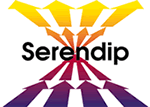|
Empowering Learners:
A Handbook for the Theory and Practice of
Extra-Classroom Teaching
By Mary Beth Curtiss, Elena Darling-Hammond, Heather Davis, Susanna Farahat, Rachel Francois, Christina Gubitosa, Allison Jones, Rebecca Kaufman, Alice Lesnick, Xuan-Shi Lim, Samantha Martinez, Caitlin O’Keefe, Emily Schneider-Krzys, Amie Claire Raymond, Sky Stegall, Becky Strattan |

Hosted on Serendip
We dedicate this book to our students with gratitude for all they teach us.
|
Introduction
This student-authored handbook is the product of a Bryn Mawr College Education course entitled “Empowering Learners: Theory and Practice of Extra-Classroom Teaching” ((http://serendipstudio.org/sci_edu/edtech04/expanding/ed225s05/), created by Alice Lesnick and Jody Cohen (with support from the Math Science Partnership of Greater Philadelphia) and taught by Alice Lesnick (www.brynmawr.edu/education). As a Praxis course (www.brynmawr.edu/praxis) at Bryn Mawr, the course included a substantial field component in which each student engaged in and reflected on a form of extra-classroom teaching over a ten-week period. We define extra-classroom teaching as including many educator roles, including tutors, T.A.’s, mentors, after-school and enrichment program teachers, parent volunteers, and even within-classroom teachers who on a limited basis help individual children or design curricular enhancements.
To write the handbook, each student identified an issue significant to her own experience as an educator and at the same time wrote a chapter meant to be of use to other educators in a range of contexts. Thus, the individual handbook chapters both contextualize and generalize our experiences as extra-classroom teachers in the hope of reaching out to colleagues in this work. We have designed the handbook not as a prescriptive set of best practices or “how-to” recipes, but instead as an exploration of questions, concepts, challenges, and strategies for educators to consider and incorporate into their thinking and practice. Ranging from topics such as team teaching to giving effective praise to partnering with classroom teachers, the chapters are unified by their commitment to forms of education that empower students and teachers as makers of knowledge, questioners, and people with freedom to make choices, develop creativity, and explore and respond to the complexity of the world and of human experience.
A variety of educational reforms in both higher education and the K-12 world require teaching that complements and supplements formal instruction. Those responsible for empowering learners outside of traditional classroom settings take on a challenging role. They must find ways to facilitate learners’ achievement within a context in which their authority, and often their time, is limited. Extra-classroom teachers must also encourage students to understand the processes by which they are learning in order to ensure that learning will continue beyond the particular context. To meet the demands of this role, educators must explore theoretical, political, institutional, emotional, and practical dimensions of teaching.
We invite you to explore the conceptual and practical resources this handbook offers educators committed to fostering educational empowerment – our own as well as that of others. For us, the handbook itself is a reflection of empowerment. To write it, we struggled with whether we knew enough to express and share our thoughts in a public forum. An experiment in exploring and re-positioning our authority as learner-teachers, we have found a voice with which to speak as educators – not in a register of certainty or unchallenged expertise, but in one of reflective experience and exploration.
We invite you to contribute to the ongoing inquiry into extra-classroom teaching by participating in an online discussion forum about the handbook.
Enjoy!
Acknowledgements
This handbook is and represents the work of many hands. Thanks to Alison Cook-Sather and Victor Donnay for supporting the initial vision of the course and to the Math Science Partnership of Greater Philadelphia for funding the course. Thanks to Paul Grobstein and Ann Dixon for creating an online life for this course and this text through Serendip (http://serendipstudio.org), an educational website and experiment in collaboration and conversation. Thanks to Nell Anderson for creating several of the field placements. Thanks to all of the professionals who served as field mentors and for providing us with the opportunity to enter your organizations as places to learn. Thanks to the friends, colleagues, and community members who served as our peer reviewers, giving time and insight to reading and responding to our drafts of individual chapters through an online peer review process (http://serendipstudio.org/sci_edu/edtech04/expanding/ed225s05/).

